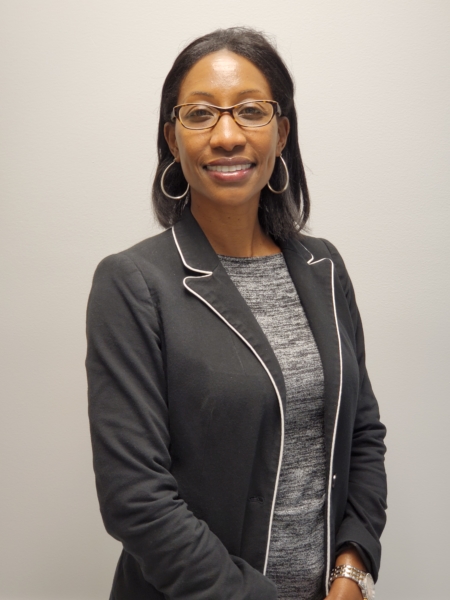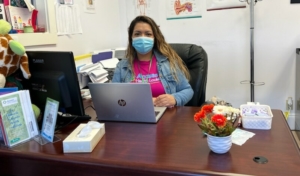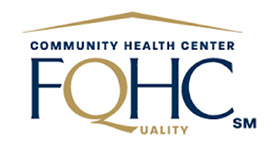AHL in the News, Events, homepage, News, Washington Community Health Center, Access Health Louisiana Primary Care at Pythian, Belle Chasse Community Health Center, Kenner Community Health Center, South Broad Community Health Center, St. Bernard Community Health Center, St. Charles Community Health Center – Norco, St. Charles Community Health Center – Luling, St. Tammany – Slidell Community Health Center, Tangipahoa Community Health Center, Woodworth Community Health Center
DOMESTIC VIOLENCE AWARENESS MONTH
October is National Domestic Violence Awareness Month. The National Coalition Against Domestic Violence defines it as is the willful intimidation, physical assault, battery, sexual assault, and/or other abusive behavior as part of a systematic pattern of power and control perpetrated by one intimate partner against another. This definition includes not only physical violence, but sexual violence, threats, economic, and emotional/psychological abuse. Domestic violence is a wide-reaching issue. The National Network to End Domestic violence reports that nationwide, more than 1 in 4 women have experienced rape, physical violence, and/or stalking by an intimate partner in their lifetime, nearly 8 million women are raped, physically assaulted, and/or stalked by a current or former intimate partner each year, and approximately 26% of children under the age of 18 are exposed to domestic violence in their lifetime.
 Individuals who experience domestic violence often must seek medical care for their injuries. Vanice Zenon, Assistant Vice President of Behavioral Health for Access Health Louisiana stated, “victims of Domestic Violence are frequent users of health service, yet they are infrequently recognized. Violence is a medical problem, resulting not only in physical injury but also in emotional and psychological harm. It is important to recognize signs and build a rapport with patients to understand their situation and support their safety.” Domestic violence has a multitude of effects on an individual’s life, not only the physical impacts but mental, financial, and environmental. The National Network to End Domestic Violence reported that 83% of survivors of intimate partner violence reported that their abusive partners disrupted their ability to work. This issue has not only a physical and emotional cost, but financial cost as well. A publication written by Gladys McLean and Sarah Gonzales Bocinski reported that the estimated cost of Intimate Partner Violence (IPV) to U.S. society, including health costs and productivity losses to be $5.8 billion. When this was converted to 2017 dollars, the cost of IPV in the United States would be $9.3 billion. To read the entirety of this publication please visit this link.
Individuals who experience domestic violence often must seek medical care for their injuries. Vanice Zenon, Assistant Vice President of Behavioral Health for Access Health Louisiana stated, “victims of Domestic Violence are frequent users of health service, yet they are infrequently recognized. Violence is a medical problem, resulting not only in physical injury but also in emotional and psychological harm. It is important to recognize signs and build a rapport with patients to understand their situation and support their safety.” Domestic violence has a multitude of effects on an individual’s life, not only the physical impacts but mental, financial, and environmental. The National Network to End Domestic Violence reported that 83% of survivors of intimate partner violence reported that their abusive partners disrupted their ability to work. This issue has not only a physical and emotional cost, but financial cost as well. A publication written by Gladys McLean and Sarah Gonzales Bocinski reported that the estimated cost of Intimate Partner Violence (IPV) to U.S. society, including health costs and productivity losses to be $5.8 billion. When this was converted to 2017 dollars, the cost of IPV in the United States would be $9.3 billion. To read the entirety of this publication please visit this link.
Though domestic violence is a prevalent issue throughout the country, certain groups are disproportionately impacted by domestic violence and face unique barriers to seeking and accessing care. One example of this is within American Indian and Alaskan Native women and men. According to the National Indigenous Women’s Resource Center, 4 out of 5 American Indian and Alaskan Native (AI/AN) women have experienced violence during their lifetime, and more than half have endured physical violence by an intimate partner. Additionally, they reported that 2 in 4 AI/AN men have experienced physical violence by an intimate partner. To read more about the impact of domestic violence on the AI/AN community, visit the National Indigenous Women’s Resource Center Website found here. Another community that faces unique barriers to accessing support and resources for domestic violence is the Hispanic/Latino communities.

Access health Louisiana’s Outreach Representative, Pahola Davis, works at the Mexican consulate with Spanish speaking individuals. She explains that domestic violence is important to talk about because “its important for us to have information about this because sometimes due to our culture and beliefs, we do not distinguish when we are suffering from domestic violence. Thinking about it it’s not just women and children who suffer from this, its men too. It doesn’t have to just be a man hitting a woman, it can be the words and the insults, the threats of not seeing your kids. These conversations are really important because sometimes people have been a victim for a while and they feel like they don’t deserve any better, or that no one can back them up, and they feel that there’s no one they can turn to for help.” This community also faces some unique barriers. Pahola explained that some of the barriers she’s notices include “the language barrier. Being afraid to make a report because you’re afraid of your information being registered and it causes more trouble. There’s also a lack of knowledge of where you can go for support. The threat of legal processes, and threat of deportation if [victims] were to report anything.” Pahola highlights the importance of recognizing community specific barriers to seeking support and resources for leaving domestic violence situations.
Domestic Violence Resources By Parish
If you or someone you know is experiencing domestic violence, there is help available for you. The Louisiana Coalition Against Domestic violence operates a 24-hour hotline to help connect you to resources. Call them at 888-411-1333. Additionally, below are more localized resources depending on your parish.
- Orleans Parish:
- New Orleans Family Justice Center 24-hr hotline 504-866-9554. Can also go directly to 701 Loyola Avenue Suite 201 to report domestic violence.
- Catholic Charities Archdiocese of New Orleans Project SAVE: offers free emergency legal representation. Call 504-310-6872 or email Allyson Tuttle at atuttle@ccano.org
- Jefferson Parish:
- Metropolitan Center for Women and Children 24-hr hotline 504-837-5400. Center also offers individual or group counseling and shelter for survivors.
- The Jefferson Parish Domestic Violence Program: helps with legal representation. Call 1-800-310-7029
- Tammany Parish:
- Safe Harbor 24-hr hotline 985-626-5740. Center provides women and children survivors with place to stay and legal representation.
- Bernard Parish:
- Bernard’s Battered Women’s Program 24-hr hotline 504-277-3177. Offers shelter, medical attention and food.
- Plaquemines Parish:
- Plaquemines Community C.A.R.E. Center provides counseling at 504-208-1290
- Survivors can also seek shelter at the Battered Women’s Program in St. Bernard Parish, or the Metropolitan Center for Women and Children at 504-837-5400
- Charles Parish:
- Charles Parish Sheriff’s Office provides counseling 985-783-6230 during regular hours and 985-783-6807 after regular hours.
- Alpha Daughters of Zion provides emergency food and shelter to victims. Also provide referrals to other services such as legal assistance and housing. 985-308-0819






